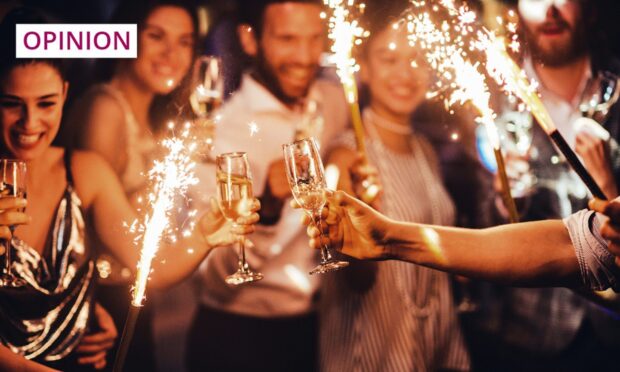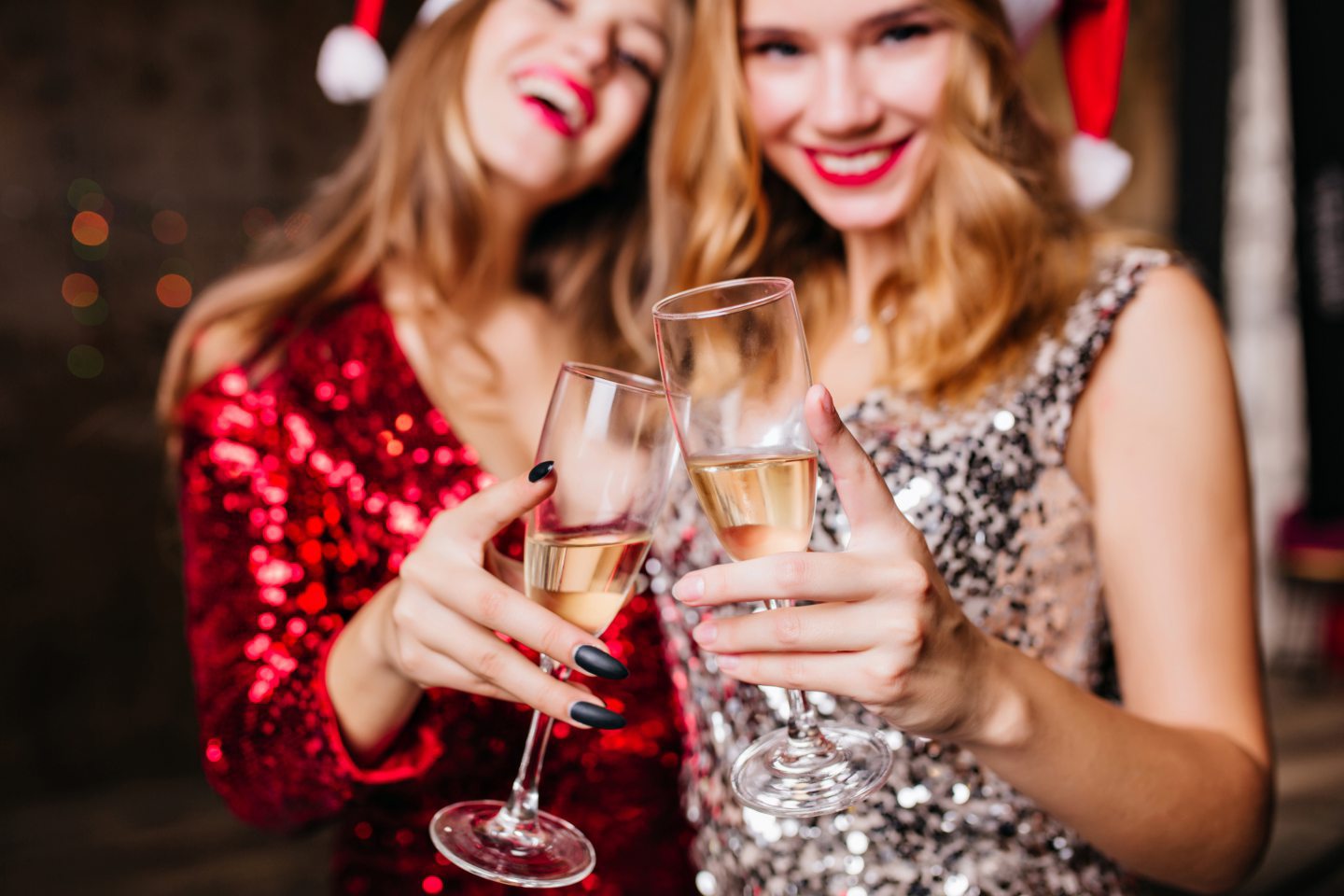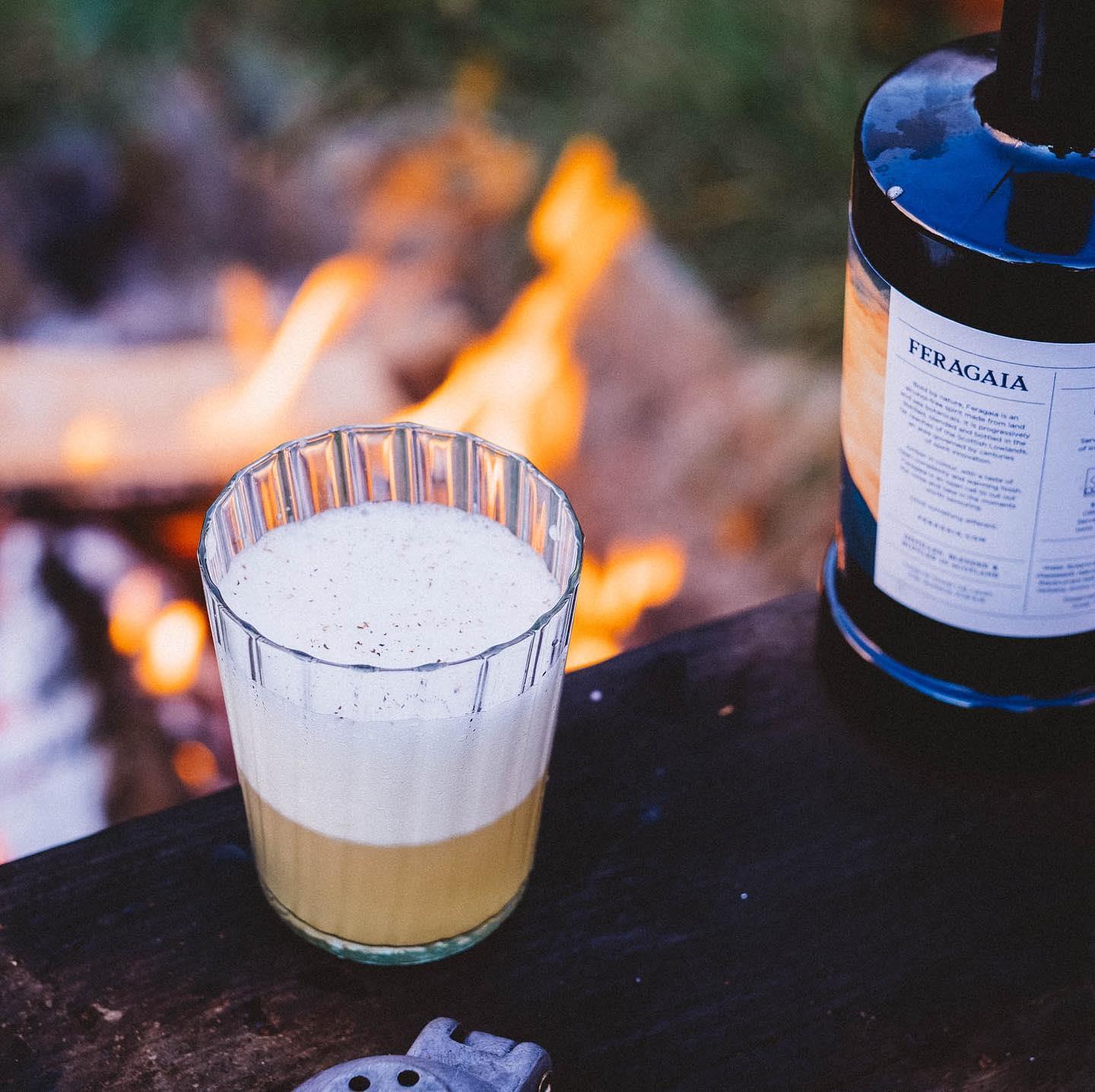Next week, it begins.
I’m sitting here looking at my calendar, feeling a bit like a lone skier watching an avalanche approach. Except it’s not tonnes of fast-moving snow headed my way, but an onslaught of social engagements. (OK, there might end up being some snow to contend with, too.)
I’ll kick off the festive season with five nights out on the trot, and all that’s just a warm-up, really, to the main event. I’m talking, of course, about the office Christmas party the following week.
From there, we march (or hobble) onwards to family celebrations; decorating the tree at my parents’ house, Christmas Eve, Christmas Day, Boxing Day. A couple of days back at work – for a rest – and then Hogmanay will roll around.
That’s a lot of socialising. I’m looking forward to it. I’m also trepidatious.
There’s an expectation that you’ll drink and be merry during the festive season. Go on then, it’s Christmas! But if I go-on-then-it’s-Christmas my way through every party, meal and get-together in my diary, I’ll end up in a sorry state, physically and mentally.
I wrote recently about giving up alcohol for a year, and it struck a chord with a fair few people. Enough people that I thought it might be worth writing about how to navigate Christmas and New Year when you want to drink less, or nothing at all.
Heading into December last year, I felt a sense of dread. What if my newfound resolve didn’t hold, or I felt obliged to drink just to fit in and keep others happy? What if someone unwittingly handed me a boozy drink without me realising? What if I ended up clear-headed, bored and cranky?
You don’t owe anyone an explanation (but here are some you can use)
I’m no psychologist, but I know very well that sometimes our brains tell us we can’t do things we definitely can do, like running long distances. And, like running, the more you stop overthinking, just get out there and socialise sober, the more you’ll believe (the more you’ll know) you can.
In my experience, family and friends (and colleagues, too) will be supportive if you tell them you’re cutting back or stopping. After all, they’re the people who care about you most, and they want you to be happy and healthy. But, if you don’t want to tell anybody – if you feel it will draw unwanted attention or prompt judgment – that’s OK, and totally understandable.
People do jump to conclusions, even if they don’t mean to. If you’re a woman and you stop drinking, there’ll be an assumption that you’re pregnant. For obvious reasons, assuring them that you aren’t doesn’t always stop the knowing smiles and wiggling eyebrows.
You don’t owe anybody an explanation for drinking less or going sober, and nobody should ask you for one – but that doesn’t mean they won’t. In the early days of my year off booze, I knew I wanted to quit for an extended period, but I didn’t necessarily want to have a full-blown heart-to-heart with every single acquaintance while I was still figuring it all out. So, I got creative.
I’m driving tonight. I’ve got a super-early start in the morning. I’m on antibiotics at the moment. These are some hassle-free ways of saying I’m not drinking without the repercussions of actually saying: “I’m not drinking.” And, honestly, the reality is that you’ll rarely be the only one abstaining, particularly if you’re with a big group.
What to drink when you’re not drinking
If you’re feeling pressure to partake, remember appearances are everything. Alcohol-free beer in a glass looks like beer, and tonic water with a slice of lemon looks like a cocktail. The same goes for lemonade, cola or whichever fizzy drink you like in a short glass. (Plus, the more other people drink, the less they’ll notice what you are or aren’t drinking.)
And, speaking of cocktails: good mocktails do exist, I promise you. I begrudge paying £10 for a glass of fruit juice, but some bars and restaurants put real effort into stocking non-alcoholic spirits or making their own kombucha, resulting in more complex, “grown-up tasting” soft drinks.
I worried a fair bit about unknowingly drinking alcohol during my year off, but even the nicest non-alcoholic alternatives just don’t taste like booze. I’m confident you’ll notice the difference if you unintentionally take a sip of pilsner or piña colada. (Importantly, you shouldn’t beat yourself up if this happens – one accidental swig is not the same as a hedonistic sesh.)
Without the booze buzz to keep you going, you might find yourself getting tired on an alcohol-free night out. You might take that as a sign to head home to bed, which is absolutely fine. But, equally, you might want to carry on. A cup of coffee or an energy drink is often enough to perk me up and get me back on the dancefloor.
You might shudder at the idea of going dancing sober but, personally, if the music is good, I tend to enjoy it. The same goes for karaoke, but – again – that might be your idea of hell on earth.
Ultimately, everyone is different, and it can take a little bit of time to figure out if Sober You likes the same things as Drunk You. But the real reason we all socialise and go along to festive events is to have a nice time – to feel part of a group, team or community and strengthen bonds; to enjoy meaningful and interesting conversation; to do something out of the ordinary and have fun. You can do all of that (and feel the warming benefits) while entirely sober, trust me.
Alex Watson is Head of Comment for The Press and Journal, and totally over New Year’s Day hangovers



Conversation